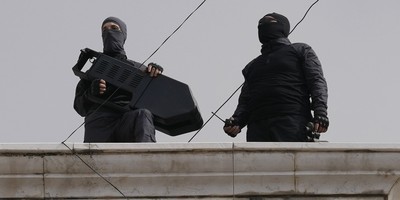MARION, Ala. (BP) -- It only seems like yesterday that we heard the unbelievable news of a terrorist attack on American soil.
My generation lived through the assassination of President Kennedy, the resignation of President Nixon and the Vietnam War, and we remember where we were when we heard about these events.
However, 9/11 is a cross-generational memory for depression-era seniors, baby-boomers like me and the millennial generation who may have been 9 or 10 years old in 2001. We all remember where we were when we heard about New York's twin towers, the Pentagon and the isolated field in Shanksville, Pa.
I got to visit Ground Zero in 2004, though the scene wasn't the one I'd remembered from television. It was at that time a construction site and home to much frenzied activity. Our tour group looked down from an observation deck into the site that once had been foundation to two massive structures.
Last summer I got to visit the isolated area in Pennsylvania where Flight 93 crashed. The memorial is unfinished and we weren't allowed to walk the actual crash site, but we learned the story immortalized in Todd Beamer's words, "Let's roll." The passengers stormed the cockpit and no one knows how close they were to re-taking the plane. The terrorist pilot rolled left and right and finally flew the plane upside down to prevent take-over, and then crashed the plane in the ground at a speed of 500-plus mph.
Law enforcement officials now believe Flight 93's intended destination was the U.S. Capitol.
In times of tragedy we grieve. The Bible is filled with examples of hurting people who wept, cried out in pain or even accused God of abandoning them. In fact, Scripture exhorts us to bring our honest thoughts to God. He knows our hearts and we shouldn't try to mask raw emotions with flowery language. It's cathartic to voice our feelings to God.
Recommended
Sometimes grieving means crying. Tears release tension. I've heard people talking about "having a good cry," and crying can be good.
In times of tragedy we pray. We pray for ourselves and we pray for those directly involved in catastrophe. And a Christian distinctive is that we pray for our enemies, too, that God would change their hearts. We certainly should continue to pray for terrorists who have no regard for human life.
In times of tragedy we help. The comedian Flip Wilson used to joke about his denominational background. "I'm a member of Jehovah's by-standers," he said. But God's people aren't by-standers, and there's no separation of church and state in times of tragedy. We go to places of suffering and help in the name of Christ.
Michael J. Brooks is professor of communications and assistant to the president for public relations at Judson College in Marion, Ala.
Copyright (c) 2011 Southern Baptist Convention, Baptist Press www.BPNews.net
























Join the conversation as a VIP Member